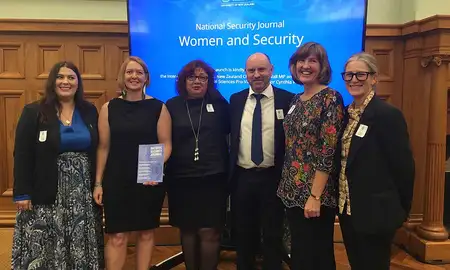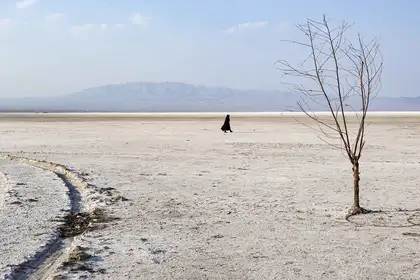
The uprising in Iran has demonstrated that Iranian women are the engine for change, both with their presence in the streets, and their voices and faces in international media.
Throughout the last decade of the Cold War (1978-1988) there was a new game in the Middle East that could claim victory, the spread of political Islamism. Iran was the first country that embraced the idea and established an Islamic state. It motivated many countries and became the sources of transformational changes across the region.
The Iranian women movement will now end that era, after over forty years of struggle. The wave of political Islamism had its fair share of crises during its 43 years, but it was the only model in the Middle East that succeeded and sustained, even if exclusively by the use of force.
The Islamic republic of Iran rose from the Cold War as the result of the vacuum of power it created in which creating a misogynist and fake religious identity for women were central ideological points that the regime has advocated when they presented their model to the work or faced ideological challenges.
Even four decades after the establishment of the Islamic Republic, the regime continues with its ideological motto that the determination of the state in containing women’s freedom had secured the success of the revolution and saved Iranians from colonisation, imperialism, and corruption. The only remaining goal for the state is to ensure the continuity of this determination, which could only be guaranteed by the full submission of women.
When women rose to reclaim their freedom and civil liberty, they not only opposed sets of discriminatory policies but discredited every theological and political claim that the Islamic Republic had and delegitimised the populist discourse of political Islamism.
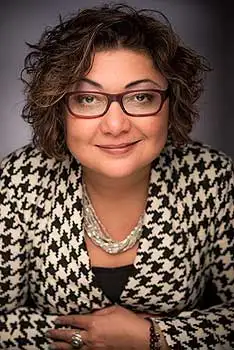
Dr Negar Partow.
Not only all Iranians can see the futility of the regime now, but this also signals the failure of the only successful example of political Islamism.
The Iranian women movement has become the voice of the child in the “Emperor’s New Clothes” who screamed “the emperor has no clothes”. Though the leadership of the system had tried to hide its failure, women of Iran and their movement has proved them wrong but exposing the brutality, lack of management and the chaos that the state maintained only due to its unlimited access to financial benefits from oil, the development of three military forces that monitor each other as well as the people, and the religious rules it has imposed on the society.
There are more legitimacy challenges to come for the Islamic Republic. All the promises of political Islamism are empty and politically impossible. These include the promise of equality, economic transparency, eradication of poverty and the development of an egalitarian social and economic system.
The Islamists who claimed that political Islamism was the only solution to dignity for women, injustice and oppression now must defend a system that kills, arrests and beats women in streets, and shows no mercy to adults or children. The news of economic corruption and embezzlement of its officials (all of whom are conservative Muslims or clergy) is spread wide and far, and the untiring fights of Iranian women have inspired many in across the region.
With over a month of unrest, street demonstrations, and documenting the brutality of the regime, it is almost impossible for the Islamic republic to continue its rule over Iran and claiming success for political Islamism. The faces of many women and youth who have been murdered, carry the message that the era of political Islamism has ended. Iranian women are the engine for change, both with their presence in streets and their voices and faces on international media.
The women’s uprising also showed that women are not the only group who have been discriminated by idealogues of political Islamism and no one politician is responsible for the oppressive system of the Islamic Republic, but they are the ones who are breaking it. Their movement empowers feminists across the Middle East and will have a detrimental impact on Jihadi groups, terrorist groups and their future in the region.
Their slogan “Women, life, freedom” encompasses an anti-thesis for political Islamism of the 20th century that was misogynistically patriarchal, exclusively focused on afterlife, and tried to achieve heaven in afterlife by creating a totalitarian state. The women’s movement in Iran is beyond a political disagreement between a state and its female citizens and offers a unique and fresh political position that has never been heard before in the region.
Dr Negar Partow is a senior lecturer in security studies at the Centre for Defence and Security Studies, at Massey University.
Related news
Opinion: The uncertain future of Afghanistan
The events unfolding in Afghanistan, with the Taliban taking control of Kabul, signal a humanitarian and political tragedy in the making, says Dr Negar Partow.
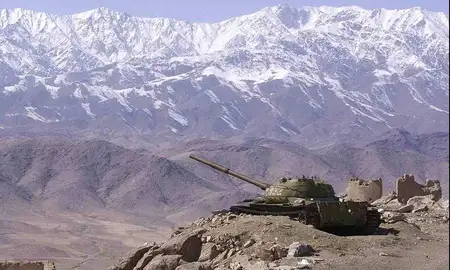
Opinion: New Zealand – security with a difference
Gender inequality persists in the security and defence sector - a reality Dr Negar Partow was reminded of when she attended an international conference on defence science in Jakarta recently.
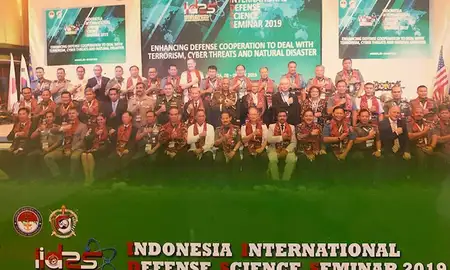
Journal explores women’s views on security
A special issue of the National Security Journal launched at Parliament this week focuses on women's perspectives on defence and security.
